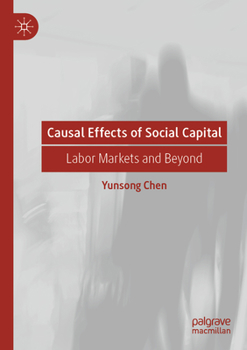Causal Effects of Social Capital: Labor Markets and Beyond
Select Format
Select Condition 
Book Overview
This book presents a series of studies focusing on the role of social capital in the labor market and beyond. Using the effect of individual social capital on labor markets as an example, this book pays special attention to the origins of and solutions to the endogeneity problem. It uses several identification strategies to systematically test for the causal effects of social capital.
First, this book constitutes the first attempt to offer a systematic account of the progress made by social scientists in improving causal inferences into the role of social capital in labor markets. Second, the book adopts specialized approaches--both classical and new--toward different sources of endogeneity. Incorporating the latest research from outside fields, such as economics, into sociological research is a small but significant methodological innovation. Third, in addition to empirical research, this book undertakes an innovative exploration of the theory of social capital. It creativelyexplains the dynamic evolution of social capital, which helps balance objectivism and subjectivism when analyzing interpersonal actions.
For sociologists who focus on quantitative research methods and social capital, scholars who study Chinese societies, and related students, this book provides both advanced methods and rich empirical research.





